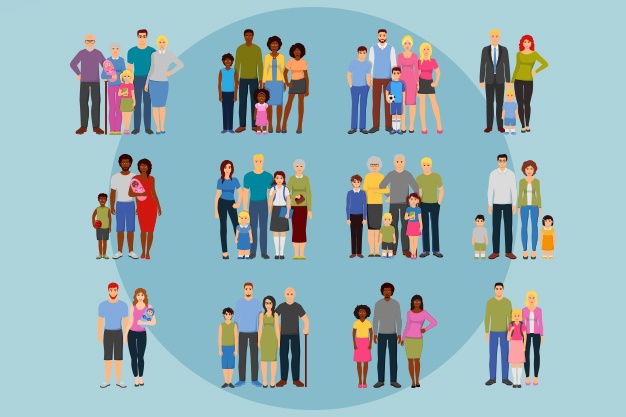Love and support is not the same as accommodating a fear.
Like all anxiety disorders, family members of those afflicted must learn how to approach their loved one without accommodating their fear. Their support can still be compassionate and loving, but they cannot say that the feared outcome won’t happen or is unlikely. Family accommodation is reduced overtime and not removed abruptly. I have family members join for at least one session for each client who allows a family session. I prefer active involvement by those who live with the loved one who is afflicted, but it is not mandatory. Research has shown that when family members are involved, the treatment has a more positive outcome.
So, why is it important to reduce accommodation? Essentially OCD and anxiety disorders are the fear of uncertainty. Exposure response prevention treatment is all about exposing those afflicted with more uncertainty. Family members typically want to give reassurance or make modifications to the environment so that their loved one is not triggered. In other words, they try to provide an element of certainty, which accommodates the fear. I will give you some examples.
Let’s say that Tiffany, a married 30-year-old woman, has contamination OCD. She will ask her spouse if he washed his hands before preparing the meal, check in on him to see if he has any symptoms of an illness that could be contagious, or ask him if he has touched anything that she deems triggering. The problem is that the more her husband answers the questions, the more Tiffany will ask for reassurance, resulting in the worsening of her OCD severity. Also, the more he gives in to her compulsions. the more he will become annoyed and even resentful that she is “nagging” him.
We will take the compulsions even further. Later Tiffany will demand that her husband cleans household items a certain way, demand that he does not touch certain items, ask him to drive her home from events so that she can use the restroom at home, and later go out to fewer and fewer places. If Tiffany’s husband complies with all of the demands, over time both Tiffany and her husband will live in a smaller and smaller bubble. Their idea of a “normal” life will become skewed over time.
I’ve met couples where the spouse of someone afflicted became so used to having to undress at the front door when returning home that it just became part of his routine. I’ve met couples who have sold houses, lost out on vacations, or haven’t seen family members in years because of triggers. The spouse becomes more of a caretaker than a partner in a marriage and it’s heartbreaking! Accommodating compulsions is devastating!
Parents also accommodate their children when it is not in their child’s best interest. This makes sense. Intuitively when our children are suffering, we want to do anything we can to alleviate their pain. I get it! I really do! However, with OCD and anxiety disorder, it is a very crucial part of the treatment that parents understand that they will have to help their children face their fears and not avoid them. Accommodating a child’s fear, as it relates to OCD and anxiety disorders, will only strip them of confidence and independence. I’ve had parents where their preteens are still sleeping in their room due to a child’s fear. For children with fears related to food, parents will cook or buy fewer varieties of food, resulting in the child becoming even pickier with food. I’ve seen numerous cases where parents will home school their children for the purpose of helping their child avoid triggers at school or in the general public. These are not bad parents! They just didn’t know what to do! Some of these same parents were given poor advice from other mental health providers who do not specialize in the treatment of OCD and anxiety disorders. They were told to not overwhelm their child and to teach them to distract themselves when they had a “bad” thought. This advice is tragic. I have parents involved in each session for a reason and the treatment outcome is far better when parents are active participants.
Part of my job is to help family members reduce accommodation over time in a way that both the family member and the client are comfortable and in agreement. I make sure that the entire process is clear. For adults, the client’s mental health will no longer be the focal point of their marriage dynamic. Spouses are sometimes included for a few minutes via speakerphone or video-conferencing. I love it when family members are involved and are willing to engage in the treatment. For parents, you will learn how to love your child in a way that empowers them to face their fear. It is spectacular to watch a child become confident.
If you wish to know more information about treatment, please don’t hesitate to contact us.

